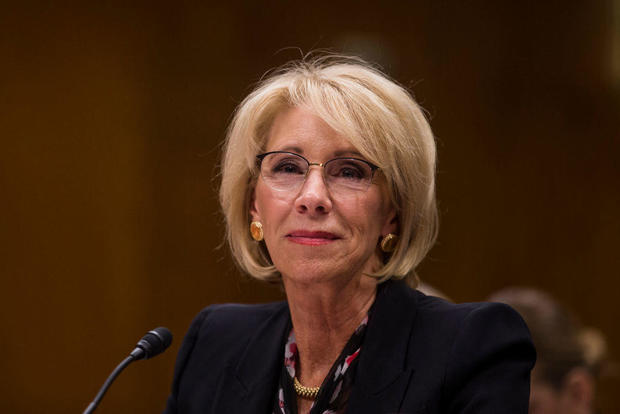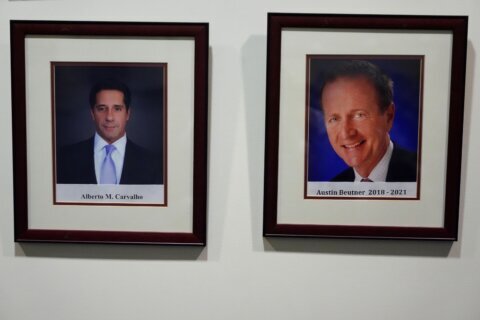The American Civil Liberties Union and other advocacy groups are suing Education Secretary Betsy DeVos over the department’s new federal regulations on how sexual assault and harassment allegations should be handled on school campuses.
The lawsuit, filed Thursday, claims the changes will result in fewer institutions “taking much-needed affirmative steps to prevent sexual harassment and assault before it happens.”
The lawsuit was filed against DeVos, the U.S. Department of Education and the department’s assistant secretary for civil rights, Kenneth L. Marcus. The ACLU wants to block the revised provisions before they go into effect in August, claiming in the suit that they go against the “language and spirit” of Title IX, the 1972 law that bars sex discrimination in education.
“This new federal effort to weaken Title IX makes it more difficult for victims of sexual harassment or sexual assault to continue their educations and needlessly comes amid a global pandemic,” the lawsuit claims. “Instead of focusing on how to help these students, the Agency has prioritized gutting protections against sexual harassment and assault that many of them currently rely on.”
DeVos new rules, announced earlier this month, will sharply change how schools are required to respond to sexual misconduct allegations. DeVos’ rules describe sexual harassment as “Unwelcome conduct determined by a reasonable person to be so severe, pervasive, and objectively offensive that it effectively denies a person equal access to the recipient’s education program or activity.”
The lawsuit said conduct has to meet the three criteria of “severe, pervasive, and objectively offensive” in order for a school to respond, as opposed to a previous definition that included “or” rather than “and” in the list.
The rules also stipulate that schools are only required to respond if the conduct occurred in an educational program or activity, the lawsuit said, allowing them to “ignore many Title IX reports of sexual assault that occur off campus/school grounds, including in off-campus housing or during study abroad.” The suit also noted that the changes relieve colleges and universities from the “the obligation to address sexual harassment” unless reports are made to a limited number of school officials.

The lawsuit also took issue with a rule that allows schools to adopt a “clear and convincing evidence” standard of proof in sexual harassment complaints, which it claims “places a heavier burden on those alleging sexual harassment than on students who allege other forms of harassment.”
In 2011, the Obama administration sent out guidelines to Title IX in a letter that offered guidance to school administrators on how to adhere to requirements of the law and urged schools to handle cases of sexual misconduct more promptly.
DeVos has made it a priority to overhaul the Obama-era guidelines and clarify the rights of accused students since she was appointed to the education secretary post.
“Too many students have lost access to their education because their school inadequately responded when a student filed a complaint of sexual harassment or sexual assault,” DeVos said on May 6. “This new regulation requires schools to act in meaningful ways to support survivors of sexual misconduct, without sacrificing important safeguards to ensure a fair and transparent process.”
In response to the lawsuit, education department press secretary Angela Morabito told CBS News in a statement on Friday that their rule “codifies meaningful protections for survivors into law and requires that schools adjudicate Title IX cases using a transparent, fair, and reliable process.”
“The ACLU, which used to defend civil liberties, should be supporting such an approach. Instead, they’re helping schools trample on basic due process and gut protections for survivors to serve an ideological agenda where the ends justify the means,” Morabito said.
But Ria Tabacco Mar, director of the ACLU’s Women’s Rights Project, called the new rule a “double standard that is devastating for survivors of sexual harassment and assault, who are overwhelmingly women and girls.”






